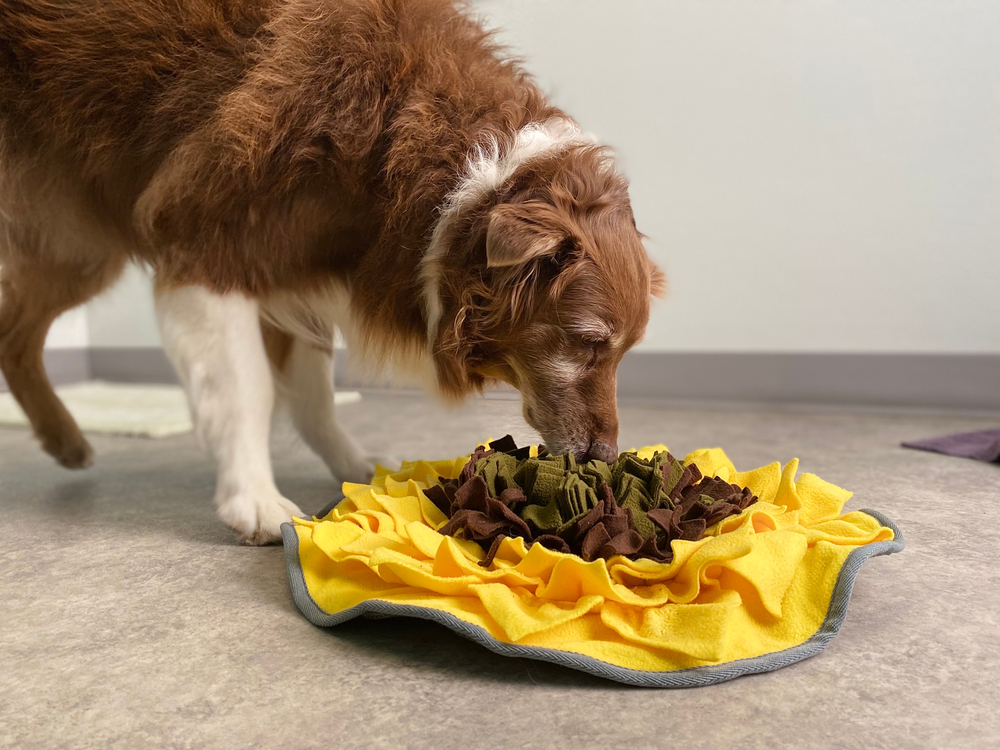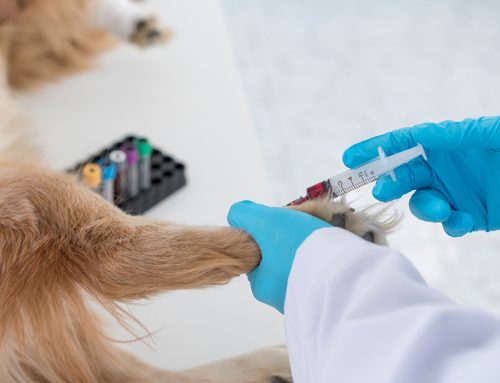Cognitive dysfunction affects pets in a manner similar to the way Alzheimer’s disease affects people. However, you may not recognize your four-legged friend’s signs. To learn how to spot, diagnose, and manage cognitive dysfunction in your pet, read our Boca Midtowne Animal Hospital team’s five tips for supporting your furry pal as they age.
#1: Learn to recognize cognitive dysfunction signs in your pet
Cognitive dysfunction’s signs are similar to some changes that are attributed to old age. Therefore, the disease often goes undiagnosed. However, if your four-legged friend’s behavior gradually changes as they grow older, they may actually have cognitive dysfunction. If your aging pet’s mental function is declining, they may exhibit any of these signs:
- Disorientation
- Confusion
- Becoming lost or stuck
- Decreased ability to recognize familiar people
- Difficulty performing previously learned tasks
- Decreased interaction with other pets and people
- Exhibiting irritable, fearful, or aggressive behavior
- Sleeping less at night
- Wandering or vocalizing at night
- Eliminating inappropriately
- Decreased activity level
- Appetite loss
- Exhibiting repetitive behaviors
#2: Have your veterinarian evaluate your pet’s cognitive function
Our Boca Midtowne Animal Hospital team can only diagnose whether your pet has cognitive dysfunction by first ruling out other potential conditions. Being able to diagnose cognitive dysfunction definitively is a bit more challenging, because no test is available to diagnose this condition specifically, so our team will evaluate your pet for conditions that may cause similar signs such as:
- Anxiety (e.g., separation anxiety, generalized anxiety, noise aversion)
- Pain (e.g., osteoarthritis, dental disease)
- Endocrine or organ dysfunction (e.g., thyroid imbalances, diabetes, Cushing’s disease, kidney or liver disease)
#3: Support your pet’s mental health
If your furry pal is diagnosed with cognitive dysfunction, you can help them cope. One of the best ways to help your pet with cognitive dysfunction is to support their mental health in the following ways:
- Encourage daytime exercise — When your furry pal exercises during the day, they become tired and can sleep well at night, and physical activity also provides mental stimulation. Whether you engage in a training session, play a game of fetch, or wave a feather wand, your pet will benefit from physical and mental exercise.
- Incorporate daily brain games — Encourage your pet to use their brain throughout the day by providing them with food puzzles, interactive toys, and engaging games.
- Stick to a routine — If your four-legged friend’s routine is suddenly disrupted, they can become unsettled and have an even more difficult time remembering how their day should develop. To help prevent your pet from becoming distressed, stick to the same schedule as closely as possible.
#4: Modify your home to help your pet cope
A senior pet who has cognitive dysfunction struggles with more than just critical thinking skills. They also have difficulty remembering where things are located, relaxing to rest, and moving around your home. Keep in mind that, in addition to cognitive dysfunction, your older pet is also likely experiencing other conditions that affect their daily life. To improve your furry pal’s quality of life, make the following home modifications:
- Improve navigation — Staircases, crowded furniture arrangements, and other obstacles can prevent your four-legged friend from moving comfortably and safely around your home, especially when their memory is failing. Help prevent your pet from getting stuck by opening up your furniture arrangements, and help them access their favorite spot on the couch by adding a ramp.
- Add light — Senior pets often experience vision loss, and they can have difficulty seeing in low-light situations. Add nightlights to help light your pet’s way in the dark. In addition, always walk outside with your dog and shine a flashlight or turn on outdoor lights so your four-legged friend can see during their nighttime bathroom breaks.
- Ensure resources are easily accessible — If your pet has cognitive dysfunction, they may not always remember where their food and water bowls and litter box are located. Ensure all your pet’s resources are easily accessible, and keep them on the home level your pet frequents so, if they have arthritic joints, they don’t have to navigate slippery stairs to reach them.
#5: Learn about cognitive dysfunction treatment options for your pet

Although cognitive dysfunction is incurable, the condition’s progression can be slowed. Consider these effective disease management strategies:
- Prescription medication — Although only one medication has been approved for cognitive dysfunction treatment in dogs, other drugs can help manage all pets’ signs. Prescription medication can alleviate pain and anxiety, allowing your pet to rest comfortably at night, or boost their appetite if they have lost interest in food.
- Prescription diets — Dietary treatment for cognitive dysfunction focuses on reducing toxic free radicals’ negative effects on brain health and function. Foods that contain antioxidants, omega-3 fatty acids, and medium-chain triglycerides have proven to be beneficial at supporting geriatric pets in myriad ways, but most importantly, their cognitive and joint function. While several over-the-counter (OTC) diets contain high levels of these nutrients, prescription diets provide the most well-balanced options for older pets.
- Supplements — Various supplements are proven to support aging pets’ cognitive function. These supplements contain ingredients, such as phosphatidylserine, apoaequorin, and S-adenosyl-l-methionine (SAMe), which are powerful ingredients that facilitate brain function, provide neuroprotective effects, and stimulate antioxidant production. When you provide these supplements to your furry pal, they may experience an improvement in learning, memory, and social behavior.
- Environmental enrichment — Any item or activity that encourages your pet to use their brain is key to slowing cognitive dysfunction progression. Toys, food puzzles, and activities that cater to your pet’s natural instincts, such as sniffing, digging, climbing, and scratching, are particularly beneficial for supporting their brain health.
If your pet’s mental abilities have declined, your four-legged friend may be suffering from cognitive dysfunction. Schedule an appointment with our Boca Midtowne Animal Hospital team, so we can determine whether your furry pal has cognitive dysfunction.








Leave A Comment